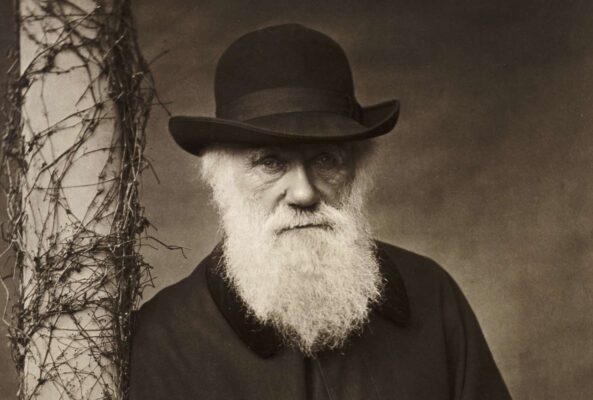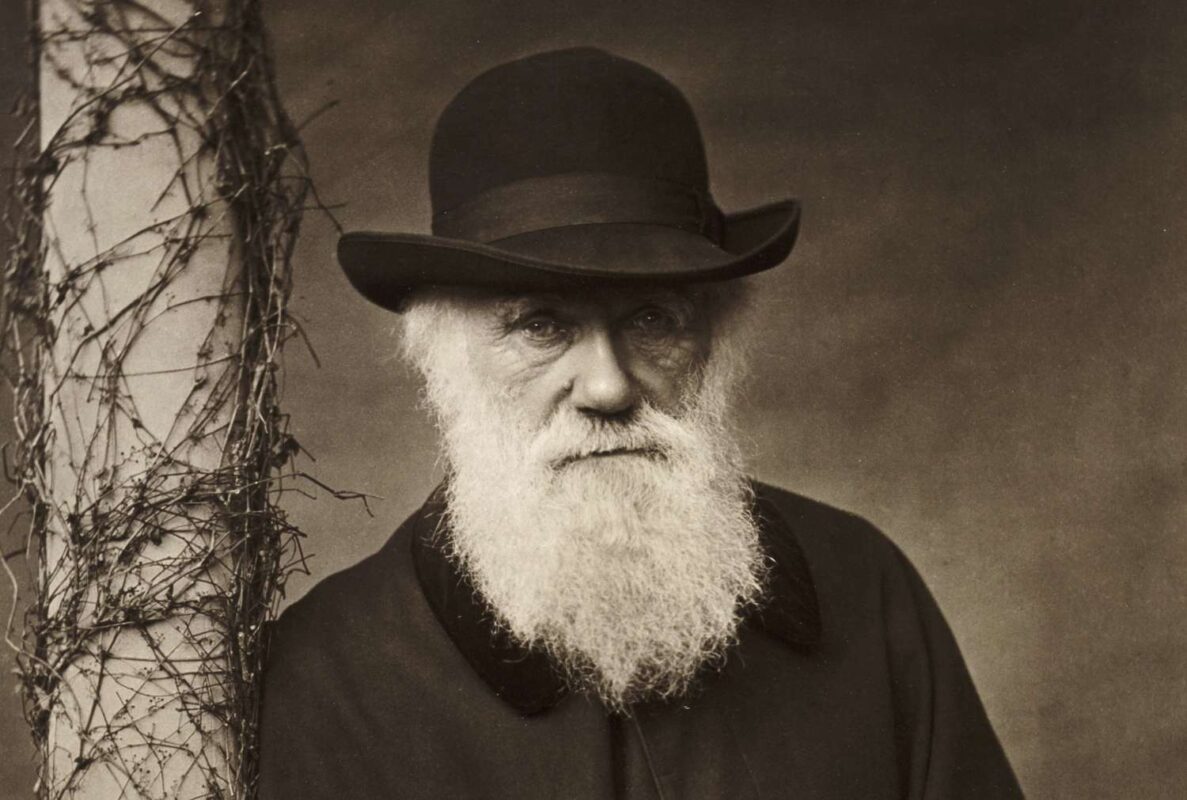Charles Robert Darwin (12 February 1809 – 19 April 1882) was an English naturalist, geologist, and biologist best known for his contributions to the theory of evolution by natural selection. His book On the Origin of Species, published in 1859, is considered one of the most influential scientific works ever written and is the foundation of modern evolutionary biology.
Early Life and Education
- Born in Shrewsbury, England, on February 12, 1809
- Fifth of six children born to a wealthy society doctor and financier
- Mother died when he was eight years old
- Educated at Shrewsbury School and Christ’s College, Cambridge
- Originally intended to become a doctor, but became more interested in natural history
- Graduated from Cambridge in 1831 with a degree in Bachelor of Arts

The Beagle Voyage
- In 1831, Darwin joined the crew of the HMS Beagle as a naturalist on a five-year voyage around the world
- Visited South America, the Galapagos Islands, New Zealand, Australia, and other parts of the world
- Collected a vast amount of specimens and made detailed observations of the natural world
- The Beagle voyage was a turning point in Darwin’s life and provided him with the evidence he needed to develop his theory of evolution
Theory of Evolution by Natural Selection
- After returning from the Beagle voyage, Darwin spent several years analyzing his data and developing his theory of evolution
- He proposed that all species of life have descended from a common ancestor through a process of gradual change over time
- This process is driven by natural selection, in which individuals with traits that are better adapted to their environment are more likely to survive and reproduce, passing on their advantageous traits to their offspring
- Darwin published his theory in On the Origin of Species in 1859
- The book was met with initial controversy, but it eventually gained widespread acceptance and revolutionized our understanding of the natural world
Later Life and Legacy
- Darwin continued to work on his theory of evolution for the rest of his life, publishing several other books and articles
- He died in Downe, England, on April 19, 1882
- Darwin’s legacy is immense. His theory of evolution is one of the most important scientific ideas ever developed, and it has had a profound impact on our understanding of biology, medicine, philosophy, and many other fields
Additional Information
- Darwin’s theory of evolution is not without its critics, but it is the most widely accepted explanation for the diversity of life on Earth
- Darwin’s work has had a profound impact on our understanding of our own place in the natural world
- He is considered one of the greatest scientists of all time
I hope this information is helpful. Please let me know if you have any other questions.

